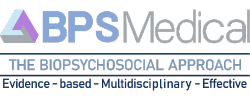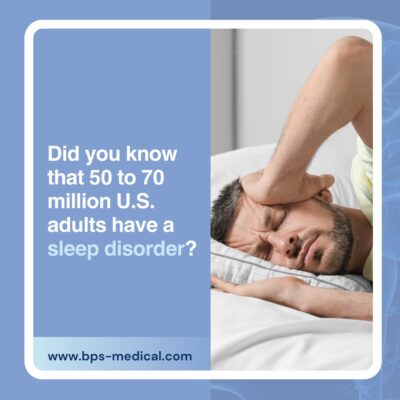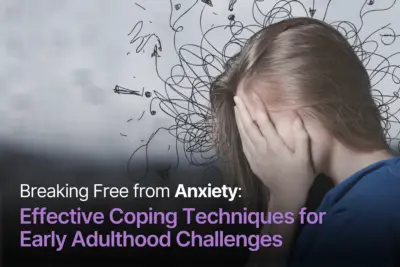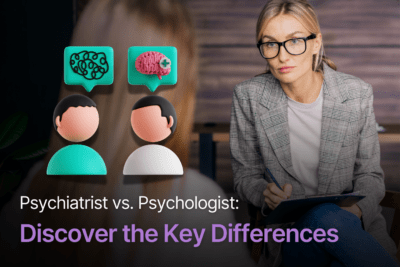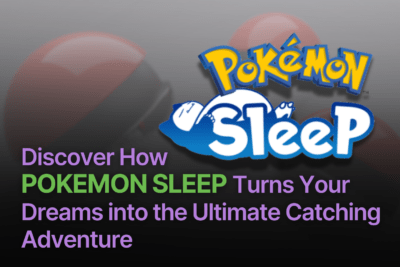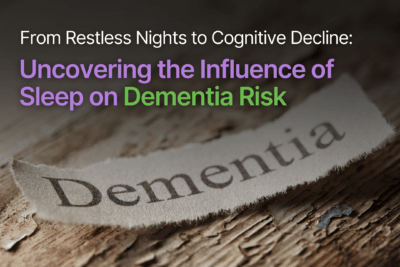Sleep Disorders: Get Restful, Restorative Sleep Again with Interdisciplinary Care
If you have chronic sleep difficulties, you’re in good company. The National Institutes of Health’s National Heart, Lung, and Blood Institute (NHLBI) says that about 50 to 70 million Americans have sleep disorders.
One in three U.S. adults doesn’t get the recommended amount of sleep they need to protect their health. In truth, sleep problems are an epidemic in this country.
So, you’re not alone in your sleep difficulty, but that’s little comfort when nothing seems to work. You can’t sleep, and it could be for several reasons.
Overcome Your Sleep Disorder By Treating It Comprehensively
At BPS Medical in Fort Lauderdale, FL, we examine all the factors that may be contributing to your sleepless nights and treat them using a variety of methods from multiple disciplines. We do this because many factors are involved in sleeplessness, and only some are physical.
In fact, there are more than 80 different sleep disorders across six categories: insomnia, hypersomnia, parasomnia, sleep-related breathing disorders, circadian rhythm sleep-wake disorders, and sleep movement disorders.
Some sleep problems have physical/biological causes, and others have psychological and social causes. For example, sleep apnea has a physiological cause, but the most common sleep disorder, insomnia, can have psychosocial contributors.
Also, sleep deprivation itself can affect us biologically, psychologically, and socially, from our overall health to our relationships, work, safety, and more. For these reasons, BPS Medical takes a comprehensive, interdisciplinary approach to treating your sleep difficulty based on the biopsychosocial model of care.
Not getting restful sleep could endanger your health… or life.
We approach sleep from the biopsychosocial perspective because it fully considers all potential contributing factors and effects… and because sleep deprivation can have a terrible impact. To wit:
- Drowsy driving causes 6,000 fatal motor vehicle collisions each year
- Getting less than 5 hours of sleep nightly increases your risk for obesity by 50%
- Sleep deprivation can cause a 33% increase in dementia risk
- Sleeplessness can increase your overall risk for depression, irritability, anxiety, forgetfulness, and cognitive decline
- Not sleeping through the night increases the risk for colorectal cancer, type 2 diabetes, high blood pressure, and developing heart disease.
Thorough diagnostics for a complete understanding of your sleep problems.
To get to the bottom of your sleep difficulty, we conduct a thorough evaluation that may include:
- Physical exam and medical history interview
- Metabolic and cell metabolism testing
- Nutrition consultation
- Medication review
- A sleep study (polysomnography)
- MRI
- Cognitive testing
- Social evaluations
Types of Sleep Disorders
Understanding the various sleep disorders is crucial to addressing them effectively. Here are the main types:
Insomnia
Definition: Difficulty falling asleep or staying asleep, even when a person has the chance to do so.
Causes: Stress, anxiety, depression, poor sleep habits, chronic illness, certain medications.
Symptoms: Trouble falling asleep, waking up during the night, waking up too early, and feeling tired upon waking.
Hypersomnia
Definition: Excessive daytime sleepiness or prolonged nighttime sleep.
Causes: Sleep apnea, narcolepsy, sleep deprivation, alcohol or drug abuse, certain medications.
Symptoms: Persistent sleepiness, long sleep periods, difficulty waking up, anxiety, irritability.
Parasomnia
Definition: Unusual behaviors or experiences during sleep, including sleepwalking, night terrors, and REM sleep behavior disorder.
Causes: Genetics, stress, sleep deprivation, certain medications.
Symptoms: Abnormal movements, behaviors, emotions, perceptions, and dreams during sleep.
Sleep-Related Breathing Disorders
Definition: Abnormal breathing patterns during sleep, including obstructive sleep apnea (OSA) and central sleep apnea.
Causes: Physical obstructions, brain signal issues, obesity, anatomical factors.
Symptoms: Loud snoring, episodes of stopped breathing, gasping for air during sleep, daytime fatigue.
Sleep-Related Eating Disorder (SRED)
Definition: A type of parasomnia characterized by involuntary eating and drinking during the transition between wakefulness and sleep.
Causes: Medications (such as sleep aids), other sleep disorders (like sleepwalking), stress, hormonal changes, or genetic factors.
Symptoms: Unconscious eating or drinking, weight gain, food-related injuries (such as burns or cuts), disturbed sleep, morning headaches, and gastrointestinal distress.
Circadian Rhythm Sleep Disorder/ Irregular sleep-wake rhythm disorder
Definition: Misalignment between a person’s sleep-wake cycle and the natural light-dark cycle, causing difficulty sleeping at desired times.
Causes: Shift work, jet lag, delayed sleep phase disorder, advanced sleep phase disorder.
Symptoms: Insomnia, excessive sleepiness, difficulty waking up, irregular sleep patterns.
Sleep Movement Disorders
Definition: Involuntary movements during sleep or when falling asleep, including restless legs syndrome (RLS) and periodic limb movement disorder (PLMD).
Causes: Genetics, iron deficiency, chronic diseases, medications.
Symptoms: Uncomfortable sensations in the limbs, an urge to move the legs, and repetitive limb movements during sleep.
Shift Work Sleep Disorder
Definition: A sleep disorder that affects people who work non-traditional hours, such as night shifts or rotating shifts, causing difficulty in sleeping or excessive sleepiness.
Causes: Disruption of the body’s natural circadian rhythm, irregular sleep schedules, exposure to light at night.
Symptoms: Insomnia, excessive sleepiness during waking hours, difficulty concentrating, irritability, mood disturbances.
Causes of Sleep Disorders
Sleep disorders can arise from a variety of causes, often classified into physical, psychological, and environmental factors.
Physical Causes
- Medical conditions: Chronic pain, heart disease, respiratory issues.
- Neurological disorders: Parkinson’s disease, epilepsy, multiple sclerosis.
- Hormonal changes: Pregnancy, menopause, thyroid issues.
- Genetic predispositions: Family history of sleep disorders.
- Medications: Side effects from certain prescriptions.
Psychological Causes
- Mental health disorders: Depression, anxiety, bipolar disorder.
- Stress and trauma: Acute stress, post-traumatic stress disorder (PTSD).
- Lifestyle choices: Irregular sleep schedule, lack of physical activity, substance abuse.
Environmental Causes
- Sleep environment: Noise, light, uncomfortable mattress.
- Work schedules: Shift work, long hours.
- Lifestyle factors: Caffeine, alcohol, heavy meals before bed.
Symptoms of Sleep Disorders
The symptoms of sleep disorders can vary widely depending on the type and severity of the disorder. Common symptoms include:
- Difficulty falling asleep or staying asleep
- Excessive daytime sleepiness
- Loud snoring or breathing interruptions
- Unusual movements or behaviors during sleep
- Irregular sleep-wake patterns
- Mood changes, such as irritability or depression
- Difficulty concentrating or remembering things
How do you diagnose a sleep disorder?
Diagnosis of Sleep Disorders
Proper diagnosis is essential for effective treatment. At BPS Medical, our comprehensive evaluation may include:
Physical Exam and Medical History
We begin with a detailed physical exam and review your medical history to identify any underlying conditions or factors contributing to your sleep issues.
Sleep Study (Polysomnography)
A sleep study involves spending a night at a sleep center where your brain waves, oxygen levels, heart rate, and breathing are monitored to identify any sleep abnormalities.
Home Sleep Apnea Testing
For those who may not need a full sleep study, home sleep apnea testing can be a convenient option to monitor breathing patterns and identify sleep apnea.
Actigraphy
This involves wearing a device on your wrist to monitor your sleep-wake cycles over several days, providing valuable information about your sleep patterns.
Cognitive and Psychological Testing
Evaluating your mental health can help identify psychological factors contributing to sleep disorders.
Metabolic and Nutrition Assessments
Assessing your metabolism and nutritional habits can provide insights into how these factors affect your sleep.
Sleep is affected by a broad array of factors, and sleep difficulties can likewise affect lives in various ways, including harmful—even deadly—consequences. At BPS Medical, we strive to help you get a good night’s sleep every night by considering, addressing, and treating all of the things that may be involved in your problem.
Schedule an Appointment
To schedule an appointment with the interdisciplinary team at BPS Medical, call 954-287-0227 or use our easy contact form.
How do I fix my sleep disorder?
Sleep Disorder Treatments
Depending on the nature of your sleep difficulty and the factors contributing to it, our interdisciplinary team of healthcare providers tailors a treatment plan just for you. The treatments we may call on to help you get restful nights again could include:
Continuous Positive Airway Pressure (CPAP)
A common treatment for sleep apnea, CPAP, involves wearing a mask that delivers steady air pressure to keep your airways open during sleep.
Oral Appliances
Custom-fitted devices can help reposition the jaw and tongue to keep the airway open, particularly useful for mild to moderate sleep apnea.
Surgical Intervention
In some cases, surgery may be necessary to remove obstructions or correct anatomical issues contributing to sleep apnea or other sleep disorders.
Exercise Prescription
Regular physical activity can improve sleep quality, reduce symptoms of sleep disorders, and enhance overall health.
Physical Therapy
Therapeutic exercises and techniques can address physical issues contributing to sleep problems, such as chronic pain or respiratory issues.
Acupuncture
This traditional Chinese medicine practice can help reduce stress, anxiety, and pain, promoting better sleep.
Massage Therapy
Massage can relax the body, reduce stress, and alleviate pain, contributing to improved sleep.
Psychotherapy and Cognitive Behavioral Therapy (CBT)
CBT can help address negative thoughts and behaviors that contribute to insomnia and other sleep disorders.
Mindfulness Training
Practices like meditation and mindfulness can reduce stress and anxiety, improving sleep quality.
Stress Reduction Techniques
Techniques such as deep breathing, progressive muscle relaxation, and biofeedback can help manage stress and promote restful sleep.
Biofeedback and Neurofeedback
These techniques use electronic monitoring to help you gain control over physiological functions, promoting better sleep.
Social Work
Addressing social factors and connecting patients with community resources can help manage sleep disorders.
Nutrition Consultation
Proper nutrition can play a crucial role in improving sleep quality. Our team provides guidance on dietary habits that promote restful sleep.
Trust the Team to Provide a Truly Comprehensive Approach to Your Restful Sleep. Treatment for sleep disorder near me
At BPS Medical, we strive to help you get a good night’s sleep every night by considering, addressing, and treating all of the things that may be involved in your problem.
Facts and Statistics
- Prevalence: An estimated 50 to 70 million U.S. adults have a sleep disorder.
- Obesity Risk: Getting less than 5 hours of sleep nightly increases the risk for obesity by 50%.
- Dementia Risk: Sleep deprivation can cause a 33% increase in dementia risk.
- Motor Vehicle Collisions: Drowsy driving causes 6,000 fatal motor vehicle collisions each year.
- Health Risks: Not sleeping through the night increases the risk of colorectal cancer, type 2 diabetes, high blood pressure, and developing heart disease.
